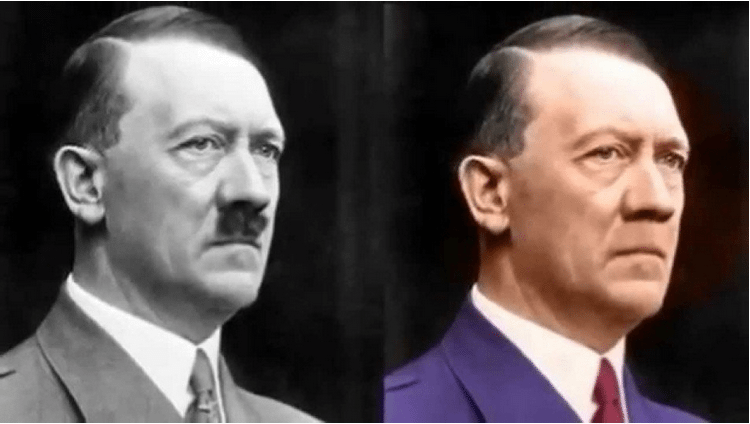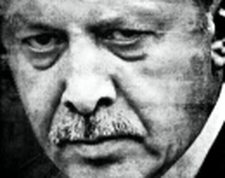BY ALEXANDRA HUDSON

Turkey’s Prime Minister Tayyip Erdogan makes a speech during the opening ceremony of Ford Otosan Yenikoy car plant in in Kocaeli May 22, 2014.
CREDIT: REUTERS/MURAD SEZER
(Reuters) – A visit by Tayyip Erdogan to Cologne on Saturday to address thousands of expatriate Turks threatens to bring Turkey’s political tensions to German streets, despite an appeal by Chancellor Angela Merkel for him to adopt a sensitive tone.
Some German lawmakers are concerned by what they see as Erdogan’s inflammatory language and authoritarian behavior in dealing with demonstrations and in handling a corruption scandal that touched on former ministers. His expected candidacy in August presidential elections could further raise passions.
Erdogan typically addresses a mass audience of expatriate Turks when visiting Germany. They are rousing patriotic affairs with thousands waving the Turkish flag. In 2008 he caused uproar by warning Germany’s largest minority against assimilation.
At least 16,000 supporters are expected at the 10th anniversary of the Union of European Turkish Democrats (UETD).
The event also falls a year after anti-government protests swept the country, fired largely by a violent police crackdown on a small demonstration against development of a city park. Erdogan has denounced protesters variously as vandals, terrorists and anarchists.
As many as 30,000 anti-Erdogan protesters are due to gather nearby on Saturday, as well as a German far-right party, leading Yeni Safak, a pro-Erdogan paper in Turkey to warn on its front page on Friday of a “trap”. Berlin, it suggested, wanted to hold Erdogan responsible for stirring trouble.
Critics in Germany say it is insensitive to give such a speech 11 days after Turkey suffered its worst ever mining accident, in which 301 miners died.
They also oppose giving Erdogan a platform when there is deep doubt in Europe about the direction Ankara is taking – two months before he is expected to stand for a presidency he aspires to turn from a largely figurehead role to that of a strong executive head of state.
Erdogan, for his part, portrays his government as fighting an international conspiracy to undermine Turkey as an emerging power in the region. His outspoken manner constitutes part of his appeal in his conservative Anatolian heartland.
Merkel told the Saarbruecker Zeitung paper in an interview published on Friday: “I assume he knows how sensitive this event is, especially this time, and that he will act responsibly.”
But she acknowledged Berlin was “concerned about some developments in Turkey, such as actions against demonstrators, attacks on social networks and the situation for Christians”.
The two leaders spoke by telephone on Thursday, Merkel’s office said, with Erdogan, by far the most popular politician in Turkey, outlining plans for his visit.
“You can hope that Erdogan will be sensitive but you cannot expect it,” said Gokay Sofuoglu, co-leader of the Turkish Community in Germany organization , noting that people were very divided about the visit. “He will use the event to win votes.”
, noting that people were very divided about the visit. “He will use the event to win votes.”
“Anybody who knows him also knows that whether it be loss of life, or corruption allegations, he always manages to twist events to boost his own support,” he said.
Last month, when German President Joachim Gauck criticized Erdogan’s leadership style and curbs on civil liberties, the Turkish premier responded: “Keep your advice to yourself.”
EXPATRIATE VOTES
The UETD says their anniversary event will be somber in tone to reflect mourning for the miners and it is unrelated to the presidential poll. But critics feel Erdogan’s very appearance in Germany is inevitably an appeal for support from expatriate Turks, significant voters after changes to the electoral system.
Some 3 million people of Turkish origin live in Germany and 1.4 million Turkish citizens can vote, a number equivalent to the electorate of Turkey’s fifth largest city Adana, according to the Institute of Turkish Studies and Integration (ZfTI).
Under previous rules, expats could only vote at Turkey’s borders. Around 62 percent of those who did in 2011 backed Erdogan’s AK Party, but few of those eligible voted.
Erdogan, in power for more than a decade, has weathered a bitter power struggle with an influential Islamic preacher, as well the graft scandal he says was engineered to undermine him. Most recently he was accused by critics of insensitivity in denouncing protests over the mining disaster.
His two-week closure of social networking site Twitter and a block on access to video-sharing platform YouTube earlier this year drew condemnation around the world, yet he remains hugely popular among Turkey’s poorer and more religious voters.
“We want to show Erdogan that he has more opponents in Germany than supporters and that here we can demonstrate, unlike in Turkey. We want him to see there is a democratic culture here, and he is undemocratic,” said Yilmaz Karaman, a spokesman for Germany’s Alevi Community who are organizing the protest.
Alevis are a religious minority in mainly Sunni Muslim Turkey who espouse a liberal version of Islam and have often been at odds with Erdogan’s Islamist-rooted government.
Events in Turkey in recent years have shocked a diaspora whose divisions mirror thoseat home .
.
“Erdogan has really taken Turkey places. People should be grateful. Of course he has a temper. But calling him a dictator is ridiculous. He works and works for our country,” said 70-year-old Hasan Oz, a retired machine operator living in Germany for 45 years. He plans to vote for Erdogan as president.
But a friend sitting with him at a street cafe in Berlin, who declined to give his name, thought differently.
sitting with him at a street cafe in Berlin, who declined to give his name, thought differently.
“Erdogan did a good thing in curbing the military and the economic strength is very admirable. But during the last years the balance between economic reforms and democratic reforms got lost, and now people’s freedoms are being restricted.”
(Additional reporting by Ayla Jean Yackley in Istanbul; Editing by Stephen Brown)
 Two right-wing lawmakers, Joram van Klaveren and Louis Bontes of the VNL faction, asked the ministry how one with such views reached a prominent position in the ministry and if Haifi’s employment constituted a security risk.
Two right-wing lawmakers, Joram van Klaveren and Louis Bontes of the VNL faction, asked the ministry how one with such views reached a prominent position in the ministry and if Haifi’s employment constituted a security risk.





